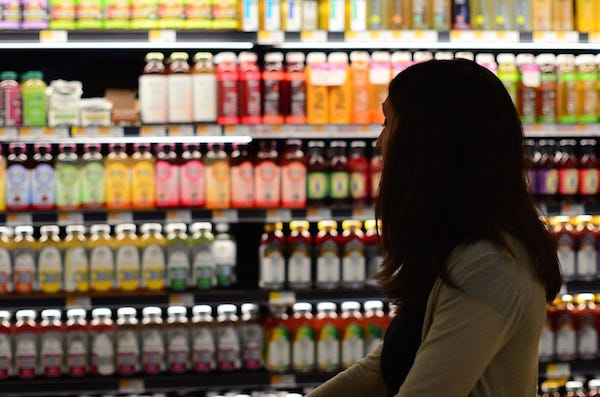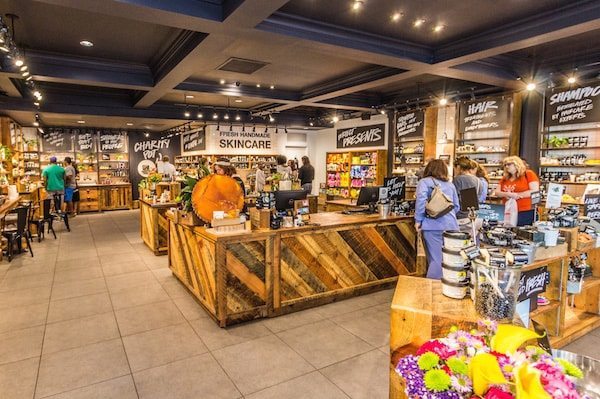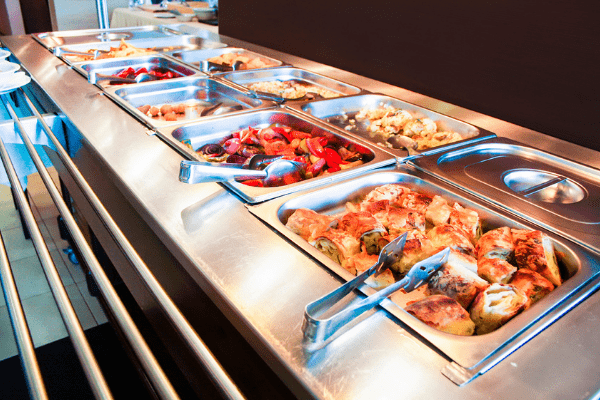When developing a consumer product, most food and farm entrepreneurs envision selling it either at retail or direct-to-consumer through Amazon or their brand’s e-commerce site. They often don’t think about the boundless possibilities in food service. In fact, when first starting out, many are completely unaware that such opportunities exist.
Food service is a gigantic industry, valued at a jaw-dropping $1.7 trillion in 2020. Encompassing all businesses that provide meals, snacks, and beverages prepared outside the home, food service is also extremely broad. The channel includes restaurants, coffee shops, catering businesses, food trucks, grocery store hot bars, stadiums, college dining halls, school cafeterias, hospital cafeterias, corporate cafeterias, and much more.
Prior to the COVID-19 pandemic, food service accounted for 55% of all food dollars in the U.S., a metric we call “share of stomach.” That percentage slipped some in 2020 and 2021, as the pandemic forced many foodservice operations to close and people began cooking more at home. But now that most COVID-19 restrictions have eased and life is regaining normalcy, the sector is bouncing back fast.
It’s true that restaurant chefs usually craft the entrées for restaurants, that coffee shops roast their own beans, and that “lunch ladies” whip up meals for school kids. Even so, many food and beverage brands and even farm-based businesses build solid revenue streams within food service. How? By providing products that the restaurant, cafeteria, school district, or other operation can’t do on its own—or that the brand can simply do better.
Take restaurants, for example. No matter how skilled a chef may be, they probably don’t excel at preparing everything on the menu, and some items may be too time-intensive or costly to make in-house. Why not bring in a local company’s craft beverage or a family farmer’s value-added blackberry jam? These items will delight customers, cut down on restaurant labor, and support a fellow small business—a triple win.
It’s similar with retail food service. Even if the kitchen staff prepares most of the items for the hot bar, salad bar, and grab-and-go section, the store might want to expand its selection beyond its capabilities. In that case, the retailer could bring in an outside brand’s handcrafted soup, fresh-made tortillas, famous cupcakes—or authentic Indian spice kits.
That’s the niche Madison, Wisconsin-based FillMyRecipe has found for its Flavor Temptations brand. The company, featured in the latest Edible-Alpha® podcast, had built successful retail and direct-to-consumer businesses for its Indian spice kits and sauces, and then foodservice doors began opening. Several school districts, along with grocery stores’ prepared foods departments, were looking to provide more ethnic and vegetarian dishes, and Flavor Temptations is helping them do just that.
More opportunities like this are springing up all across food service. With rising consumer demand for ethnic, plant-based, sustainably sourced, local, organic, allergen-free, nutritious, and handcrafted foods, small food and farm brands are perfectly positioned to fulfill these needs.
Just know that the food service channel has its own nuances, schedules, and demands that can differ from other channels, so entrepreneurs must approach these ventures with a solid business plan.

FillMyRecipe co-founders Sara Parthasarathy and husband Partha Sabniviss launched Flavor Temptations spice kits to help consumers cook authentic, joyful Indian food. Ten years and one global pandemic later, their business looks a lot different than they ever imagined. Tune in to learn how this nimble, resilient omnichannel brand has scaled its operations, honed its sales strategy, and navigated new opportunities.
And now, our roundup of the best food and beverage finance news, events and resources from around the web…

Business Model Insights
- Renewal Mill: Making a profit while committing to sustainability (Natural Foods Merchandiser)
Incorporating upcycled products and ingredients can make a difference for many brands as they seek to make sustainability part of their production processes. - Turning threats into opportunities: Can food companies successfully attack in all directions? (Food Dive)
- Food Manufacturers: How to Engage in an ESG Materiality Analysis (Food Industry Executive)

Raising Capital
- Revenue management in an inflationary environment (IRI)
New report examines price elasticity across categories and shows that brands will need to remain nimble, closely monitor and adjust to volume responses to price increases, and leverage a comprehensive playbook of revenue management levers. - The Rise of Regenerative CPG: A Portfolio Case Study (RFSI News)
- Want To Save The Planet? Invest In Better Ag Policy, Not Biotech Meat (Forbes)

CPG/National Brands
- Alter Eco infuses sustainability throughout its supply chain (Natural Foods Merchandiser)
After debuting the world’s first compostable candy wrapper in 2013, brand has continued improving upon that original design while launching sustainable packaging for more products. - Bridging the gap: Better audience targeting with context and behavior data (Nielsen Insights)
- Expert: Brands Must Consider Emotional Factors of Inflation (The Food Institute)

Market Trends
- Consumers ‘laser-focused’ on discounts as food prices hit four-decade high (Food Dive)
Food-at-home prices jumped 10.8% over the past year—the largest 12-month increase in over 40 years. Unrelenting increases are testing consumers, who are curbing costs by trading down to less expensive items or switching to private-label brands. - Meal Kits Moving to the Mainstream (Progressive Grocer)
- Organic gains distribution, but also faces increased skepticism, competition (FoodNavigator-USA)

Farming and AgTech
- Ice Cream Giants Innovate to Help Avoid Climate Meltdown (Sustainable Brands)
Through regenerative agricultural practices and new technology, Ben & Jerry’s aims to reduce greenhouse gas emissions on 15 dairy farms to half the industry average by the end of 2024. Once proven, pilot initiatives will expand across its global dairy supply chain. - This Antioxidant May Provide a Key Link Between Regenerative Agriculture and Human Health (Civil Eats)
- NRDC: US federal policy ‘must invest’ in regen ag to make it a viable climate solution (AgFunder News)

Deals/M&A
- Lost and found: Brands neglected by large CPGs thrive under new ownership (Food Dive)
Krave Jerky, Funfetti and other lines have flourished after being divested, with their new owners spending more on marketing, innovation and product quality. - LesserEvil enters bar category with acquisition of R.E.D.D. Bar (Food Business News)
- Brightseed bags $68m Series B funding from Temasek, AgFunder, others to launch ingredients biz (AgFunder News)

Industry Events
Virtual events:
- FFI Fellows Program Informational Session: 5/19
- Edible-Alpha® MVP Series Workshop: Key Legal Considerations and Managing Your Business Risk: 5/25
- Edible-Alpha® MVP Series Workshop: Developing a High-Performance Organization: 6/8
- Rooted in Health: Investing at the Intersection of Regenerative Agriculture & Nutrition: 6/22–6/23
- WSJ Global Food Forum: 6/27–6/28
- FFI Farm Financial Management Bootcamp: 6/28–6/29
- Edible-Alpha® MVP Series Workshop: Financial & Accounting Processes: 7/8
- IFT First: Annual Event and Expo: 7/10–7/13 (hybrid event)
- Food Finance Institute July Quarterly Trends Talk: 7/11
In-person events:
- National Restaurant Association Show: 5/21–5/24 in Chicago, IL
- Sweets & Snacks Expo: 5/23–5/26 in Chicago, IL
- Soil Health Academy School: Grazing for Profit & Regeneration: 5/31–6/2 in Cimarron, NM
- International Dairy Deli Bakery Association Show: 6/5–6/6 in Atlanta, GA
- Sosland Publishing Purchasing Seminar: 6/5–6/7 in Kansas City, MO
- Soil Health Academy School: Transitional Regenerative Dairying: 6/7 in Waterloo, NY
- Soil Health Academy School: Transitional Regenerative Dairying: 6/9 in Loganton, PA
- World Pork Expo: 6/8–6/10 in Des Moines, IA
- Vegandale Festival Chicago: 6/11 in Chicago, IL
- Summer Fancy Food Show: 6/12–6/14 in New York, NY
- WSJ Global Food Forum: 6/27–6/28 in Chicago, IL
- IFT First: Annual Event and Expo: 7/10–7/13 in Chicago, IL
- Organic Produce Summit: 7/13–7/14 in Monterey, CA
- Soil Health Academy School Regenerative Farming and Ranching: 7/18–7/20 in Redwood Falls, MN
- American Cheese Society Annual Conference: 7/20–7/23 in Portland, OR
- Digital Food & Beverage: 7/25–7/26 in Austin, TX
- Chicken Marketing Summit: 7/25–7/27 in Braselton, GA
- International Fresh Produce Association The Foodservice Conference: 7/28–7/29 in Monterey, CA
- Minnesota Farmfest: 8/2–8/4 in Redwood County, MN
